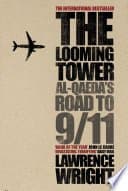Exploring Terrorism From the Perspective of Extremist Groups
<p>Gain a deeper understanding of terrorism from the viewpoint of extremist groups by exploring their motivations, ideologies, and socio-political contexts. </p>

Books Featured in This Article
Explore the books discussed

Exploring Terrorism From the Perspective of Extremist Groups
When most of us hear about terrorism, it's through the lens of the defenders—the heroes combatting this global menace. News stories and documentaries often focus on governments, intelligence agencies, and the brave soldiers on the front lines. But what if we stepped inside the minds of the very perpetrators? Understanding terrorism from the perspective of extremist groups offers an invaluable, albeit unsettling, glimpse into the other side of the coin.
Understanding the enemy doesn't just mean knowing their threats, but comprehending their motivations.
Shattering the Single Story
Literature plays an essential role in dissecting the undercurrents of terrorism. The typical portrayal of 'us-vs-them' can miss the complexities that drive individuals toward radicalization. Delving into memoirs, autobiographies, and analytical texts gives us a multi-dimensional view rather than a flat, one-sided picture.
One such enlightening read is 'The Looming Tower: Al-Qaeda and the Road to 9/11' by Lawrence Wright. This acclaimed book provides an intricate weave of personal stories, historical contexts, and political motivations that have driven such extremist groups.
Humanizing the Extremists
It's easy to demonize terrorists, but humanizing them through their narratives can unravel their psychological and socio-political motivations. Perhaps, they see themselves as freedom fighters or revolutionaries driven by perceived injustices.
Every extremist has a story, and these stories are often rooted in a struggle for identity and belonging.
Autobiographies and memoirs reveal this personal conflict, their battles, and their quests for a higher purpose. They invite the reader to see beyond the heinous acts and witness the human elements entangled in these malicious activities.
The Socio-Political Canvas
The rise of terrorism is often painted against the backdrop of economic disparity, political instability, and cultural upheaval. Analytical texts can provide extensive insights into these complex socio-political landscapes. Understanding these contexts can make the pieces of this dark puzzle fall into place clearer.
These readings highlight how marginalized groups might resort to extremist ideologies as a form of resistance or a struggle for survival. Such perspectives offer a sobering realization that terrorism doesn't exist in a vacuum but is deeply ingrained in systemic issues.
The heart of terror beats in the environment of oppression and exclusion.
Engaging With Extremist Literature
Engaging with literature that explores terrorism from the viewpoint of extremist groups is not for the faint-hearted, but it is undoubtedly essential for anyone seeking a comprehensive understanding of global terrorism. It demands intellectual rigor, empathy, and an open mind.
Beyond 'The Looming Tower', readers might engage with analysis, memoirs, and documents that expose the multi-faceted dimensions of terrorist ideologies. For instance, works like Chris Morris' Al-Qaeda: The True Story of Radical Islam or Jason Burke's Al-Qaeda: Casting a Shadow of Terror provide further depth and varied perspectives on the issue.
Literature gives voice to those who would otherwise remain faceless enemies amidst global condemnation.
The Path To Understanding
The quest to understand terrorism through the lens of its perpetrators is a daunting yet rewarding journey. It challenges our prejudices, stretches our empathy, and enriches our awareness. By diving into these narratives, we gain more than just knowledge; we gain perspective.
It’s a complex web that involves emotional, political, and cultural fibers, and understanding it holistically is perhaps the first step toward addressing the underlying issues effectively.
To combat terror, we must first understand the terrorists.
Ultimately, literature serves as a bridge, connecting us to the unlikeliest of individuals in the unlikeliest of circumstances, illuminating the shadowy pathways that lead to extremism.
About the Author

Book Junkie
Your go-to source for book reviews and recommendations.
You Might Also Like
Related Books
Related Articles

Transformative Reads for Teens: Navigating Life at 17
Discover the power of literature with our curated list of essential books for 17-year-olds. From fiction that inspires self-discovery to empowering non-fiction, these reads provide guidance and comfort during the tumultuous teen years. Uncover the wisdom

Unlocking the Secrets of Dark Academia: A Must-Read List
Dive into the enchanting realm of dark academia with our curated list of gripping novels that explore obsession, psychological intricacies, and haunting atmospheres. Perfect for readers seeking literary adventures akin to films like *Kill Your Darlings* a

Unlocking New Chapters: Inspiring Books for Readers in Their 50s
Discover a curated list of transformative fiction and non-fiction books designed for readers in their 50s. Embrace change, find inspiration, and celebrate life's possibilities with these insightful reads.

Unlocking the Secrets of Monastic Life: 12 Novels Rich in Religious Intrigue
Dive into the captivating world of ancient monasteries and religious power struggles through our curated selection of novels. Discover tales that will enrich your understanding of history while satisfying your love for literary intrigue.



